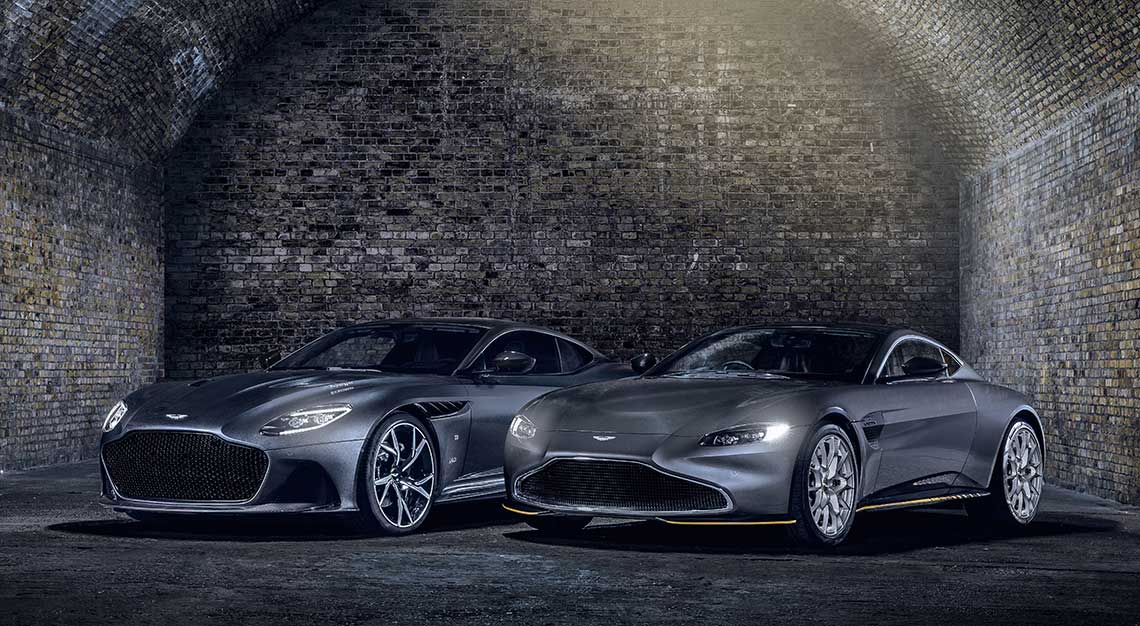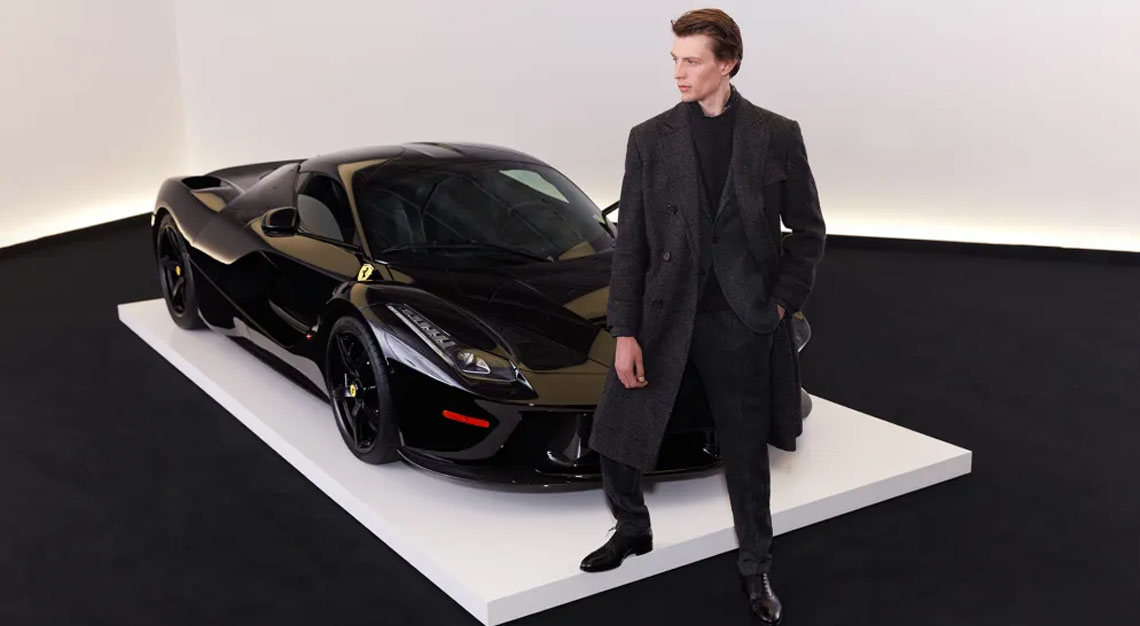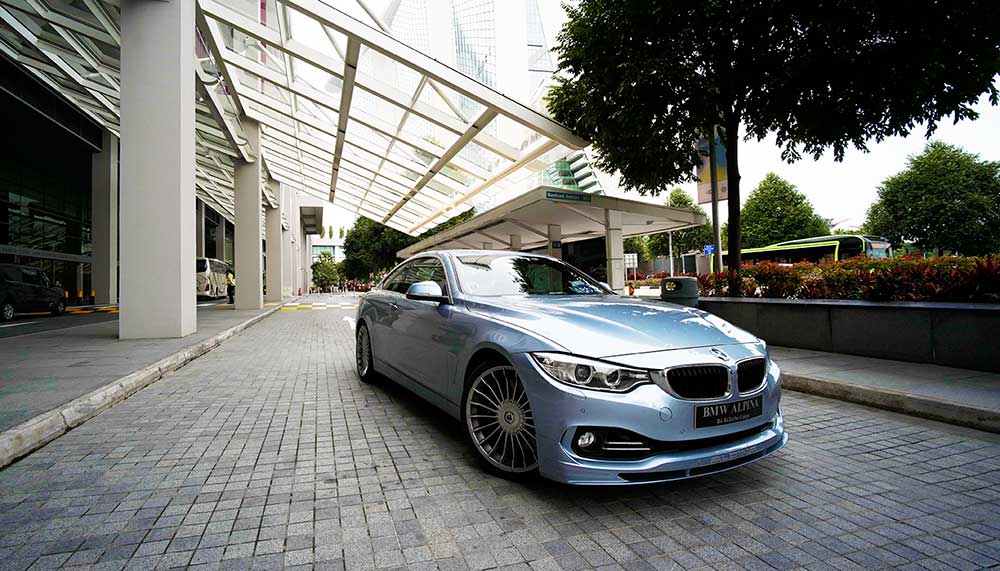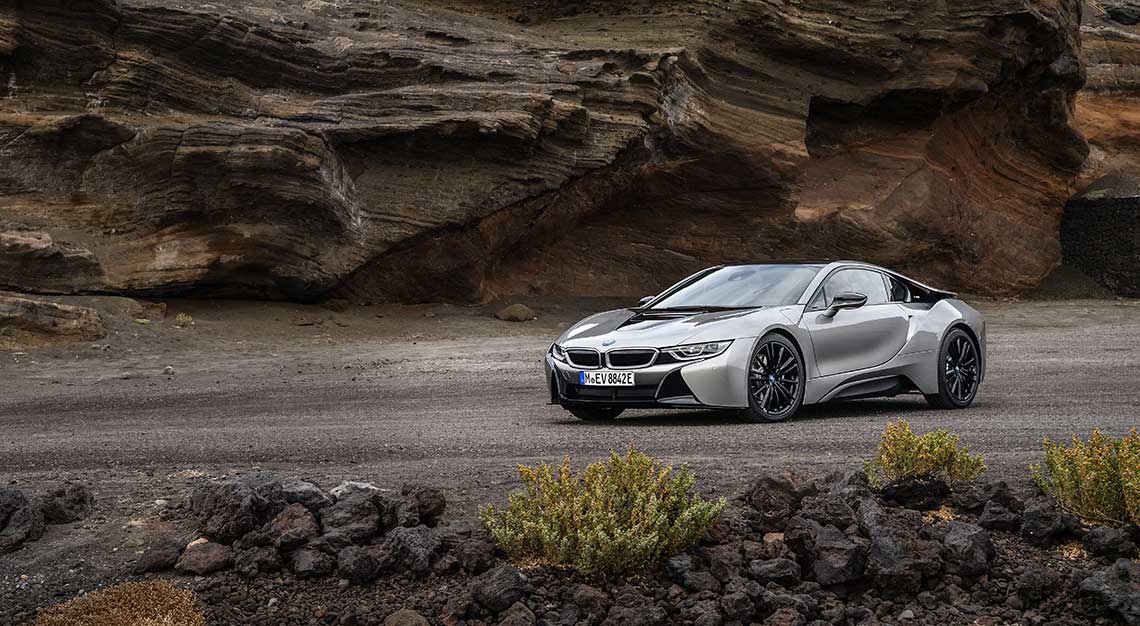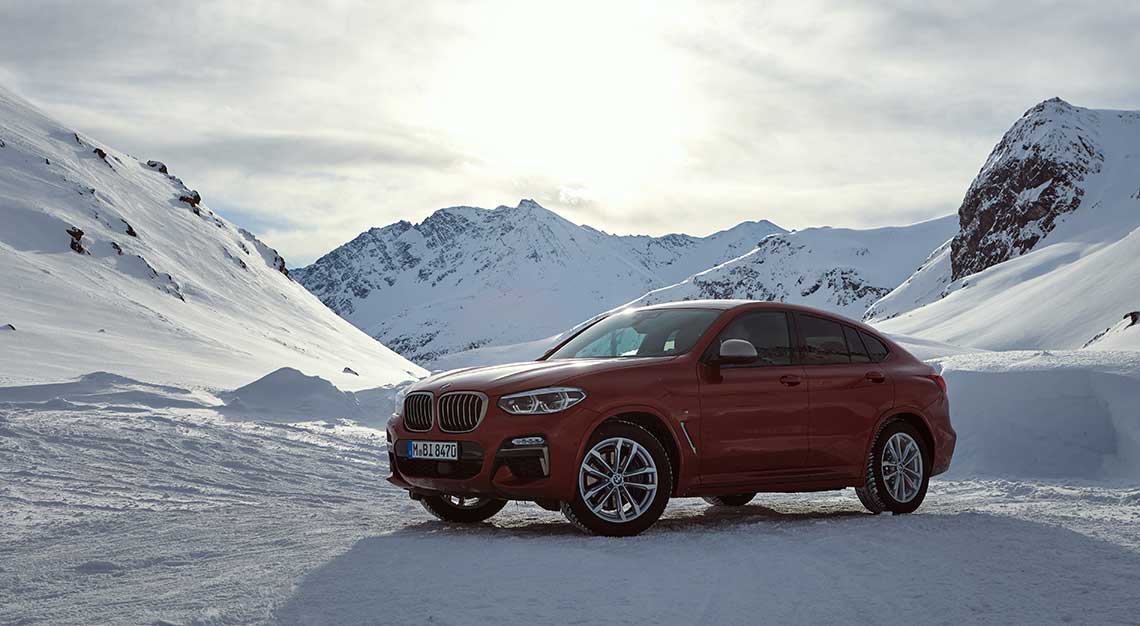Putting a field running the gamut from ultra-luxe electric SUV to gas-burning 12-cylinder GT through its paces on both track and street, this year’s judges had their work cut out for them. So who would take the crown?
A logical mind seeks order. Taxonomy within the natural sciences is what allows zoologists to identify species. Even in medicine, doctors use different standardised codes to bill insurers when a patient is “bitten by crocodile” vs. “bitten by alligator.” One can only wish that things were as straightforward in the automotive world. Today more than ever, the lines are blurred when classifying cars; each model can be, and do, so many different things. When Robb Report created its Car of the Year contest 21 years ago, categories such as Sports Car, Convertible, GT, and Sedan were clear demarcations of a vehicle’s purpose and capability. Back then, it was unthinkable that an SUV might out-sport a sports car while being every bit as comfortable as a four-door luxury sedan. Yet in 2019, Lamborghini’s Urus SUV was voted our Car of the Year, stealing so many judges’ hearts by doing everything so well.
Since then, SUV-ish designs including Aston Martin’s DBX707 and the Ferrari Purosangue have toppled preconceived notions and obliterated conventional automotive categorisation. Every one of our 10 Car of the Year contenders for 2024—put through the paces in California and Florida—is a true high-performance vehicle and a luxury vehicle, each ladling on varying ratios of these antipodal and once mutually exclusive attributes. McLaren’s Artura, the quickest of the bunch with a zero-to-100 km/hr time of 3 seconds, gives up interior space but not comfort, while Rolls-Royce’s 5.1-second Cullinan is only slightly slower—all the better for occupants to savour its truly spectacular cabin. The former is a track master, the latter more a long-haul cruiser, yet both capably acquit themselves as a daily driver. And price isn’t necessarily the key to pleasure, either: About US$473,000 separates the US$86,780 Alfa Romeo Giulia QV and the US$559,650 Rolls-Royce Spectre, yet Alfa’s do-it-all sports sedan took seven of our 123 judges’ top votes, only two fewer than the otherworldly electric Rolls.
If there’s another trend, it’s that all-electric and hybrid-electric power trains will continue to elbow out their internal-combustion-engine competitors. Like it or not (and plenty of our judges vociferously did not), the EV revolution is upon us. This year, two of our entrants, the Mercedes-AMG EQE SUV and the Rolls-Royce Spectre, are entirely battery powered—a first for both marques—while the BMW XM and the McLaren Artura are both plug-in hybrids. The Artura combines what, to the editors’ minds, is the best of both the electric- and the ICE-powered worlds. The British marque melds them brilliantly, using hybrid architecture that employs a motor to goose an all-new V-6 engine; its superb power train is just one reason why the editors chose it as their Car of the Year.
Which is not to diminish the overall winner. Aston Martin’s DB12 proves that a venerable formula—a drop-dead-gorgeous GT with sports-car chops and an ultra-luxe interior—is tough to beat. Meanwhile, the Bentley Flying Spur Speed had numerous admirers, though most of them lamented that Bentley’s stellar 12-cylinder engine is soon to be a thing of the past as the marque embraces a hybrid-electric future. Embodying as much a sports sedan as a chauffeur-driven limousine, the big Spur proved its mettle on the track, inspiring confidence in drivers with its impressive handling and neck-snapping power. Literally blurring the landscape is something each of this year’s cars does with gusto, an experience that, regardless of a vehicle’s motive power or number of doors, will never get old.

BMW XM
In the early iterations of our contest, plug-in hybrids and SUVs weren’t considered for Car of the Year, as neither segment had examples we felt were worthy of consideration. Yet that was before such automotive giants as Ferrari and Porsche added battery power and Lamborghini redefined the ute. Hybrid tech is now behind some of the world’s most rarefied supercars, and the golden age of sport-utility vehicles glows strong as ever. Hence, the BMW XM plug-in hybrid SUV earns a rightful place in our field of contenders.
The XM stands apart as the first plug-in hybrid model developed by the automaker’s motorsport-focused M division, giving you a V-8 combined with an electric motor, made obvious by the surprisingly aggressive exhaust note. Ginger Mollo considered the car “a great addition to the BMW lineup,” adding, “it has loads of potential to be a leader in the hybrid category, but still has some way to go in terms of acceleration and handling.” Of the 6,094-pound (curb weight) SUV, Gregory De Giorgis claimed that his “expectations were quite high, and this car absolutely delivered,” also mentioning that it “had the feel of a much lighter and shorter car.”

A negative for many of the judges was the exterior styling, which Kirk Meighan referred to as “a mixed bag of unrelated angles and shapes.” Mark Newman agreed: “I love BMW, but they lost their way with this design.” In the opposite camp were Jon Robinson and Michael Sisk, who called the SUV’s appearance “beautiful” and “sleek,” respectively. Like many modern BMWs, the XM was polarizing, as evidenced by Brent Martini’s opinion that it was “the disappointment of the day,” and Jason Tamaroff’s declaring its performance “incredible.” Baljeet Sangha gave the highest compliment, calling it “a daily driver that can rise to the occasion, no matter the occasion.”
Engine: 4.4-litre twin-turbo- charged V-8 plug-in hybrid
Power: 644 hp @ 5,400-7,200 rpm
0-100 km/hr: 4.1 sec
Top Speed: 270 km/hr

Mercedes-AMG EQE SUV
The most future-forward model in our 2024 Car of the Year lineup, the Mercedes-AMG EQE SUV was also the sleeper of the field. Underestimated upon first impressions, the vehicle surprised some by quietly tallying a robust number of votes. The same way BMW tapped into its motorsport division for the XM in our competition, Mercedes turned to its high-performance AMG team to arm this 617 hp family hauler with enough grunt to fire off the line, which was put to the test at both Sonoma Raceway and the Concours Club. No small feat for a 2,616 kg (curb weight) commuter—and many were impressed. “I wanted to hate this car,” said Neil Johnson. “However, the interior was gorgeous, and the performance was exceptional in both speed and handling.” Everett Robert even asked if the propulsion was from “electricity, or does it run on rocket fuel?” That’s not to say the EQE won over everyone. Ann Burris dismissed it as “nice, but not exciting,” but she and a few others were outliers. Michael Sisk called it a “Tesla killer,” and Michael Lombardo found that “the performance was fantastic—you forget you’re driving an SUV.”
Understandably, the 56-inch Hyperscreen dashboard, which James Diggs called “fabulous,” alienated the analog crowd (and it will be interesting to see how it ages), but the EQE certainly offers the bleeding-edge tech of its day. “What a wonderful interior,” Lee Carpenter enthused, although Morgan Saliny complained that “the dizzying amount of screens and electronics in this vehicle really became a distraction.” Not so for Jacob Januszewski, who was taken by the SUV’s “exquisite balance between eco-friendly performance and interior extravagance, offering a driving experience that not only satisfies but also delights at the most unexpected moments.”
Motors: Dual electric
Power: 617 hp (combined)
Range: 378 kilometres
0-100 km/hr: 3.4 sec
Top Speed: 240 km/hr (limited)

Rolls-Royce Spectre
In the opinion of Robb Report’s editorial team, the 584 hp Rolls-Royce Spectre is the seminal luxury vehicle of the century to date, completely redefining one of the most storied marques in history without changing an iota of its character. According to automotive editor Viju Mathew, the first electric production car to carry the Spirit of Ecstasy on its hood “plays to all the strengths the 120-year-old automaker is renowned for: that unparalleled glide now enhanced by an effortless delivery of power, while the cabin’s silence is even more resounding.” Although it boasts a prominent, yacht-inspired front end—a tribute to the 2008 Phantom Coupé—Spectre is the most aerodynamic model ever built by Rolls, thanks in part to its sleek fastback profile. And it’s the current ne plus ultra when it comes to interior adornment, debuting the new Starlight Doors (delicately sprinkled with 4,796 backlit “luminaries”) to complement the headliner’s already celestial display.

The entire package was revelatory for Arthur Ward IV, who admitted, “As much as I didn’t want to like an EV, this car blew me away.” Jennings Pierce applauded its “awesome acceleration and drivability,” saying that the model has “too many luxury features to mention,” and Ian Tacquard crowned it “the best electric vehicle I’ve driven.” Granted, track drills were not in the design brief for the 2,975 kg (curb weight) car, as Taylor Merritt pointed out: “The handling in the slalom was like trying to hurl an anvil around a corner on a string.” Kenneth Spiegel felt that the optionally activated regenerative braking “made the stopping too jerky,” and Rodrigo Aguilar was “not too keen on the gear changer,” explaining that it “felt too much like a windshield [wiper] lever.” Yet most judges shared sentiments on par with Edward Smith, who deemed it “the perfect storm of luxury, elegance, and power.” Or take Wendy Martini’s emphatic assessment: “Perfection, perfection, perfection.”
Motors: Dual electric
Power: 584 hp (combined)
Range: 428 kilometres
0-100 km/hr: 4.4 sec
Top Speed: 249 km/hr (limited)

Alfa Romeo Giulia QV
A bit of a wolf in sheep’s clothing, the QV features an aggressive 2.9-litre twin-turbo V-6 engine, the most powerful ever in a series-production Alfa, wrapped in the stylings of a fairly innocuous Italian luxury sedan. The Quadrifoglio (Italian for “clover-leaf”) on each front fender, reserved for the marque’s sportiest drives, distinguishes the QV from the five other Giulia models. Nimble handling, rear-wheel drive, and near-perfect 50/50 weight distribution make this car “fun, fun, fun,” according to Benjamin Mitchell, who added, “It’s the definition of what a compact sport sedan should be.”
That sentiment was expressed by many of our judges, seven of whom named the QV their Car of the Year, a telling designation considering it was the least expensive vehicle in the mix. “No question, it’s the best bang for the buck,” said Lee Oleinick. Jeffrey Morgan agreed, reasoning, “For the money, [it’s] the best overall car on the track today.” Baljeet Sangha appreciated the QV’s dual nature, calling it “externally professional and polished, but with the heart of a savage.” Ricardo A. Sagrera detailed the “sublime suspension, wonderful engine, linear torque delivery, and great track handling. The best everyday driver that drives you happy to work and back!” Gerritt Huizenga expressed what many of us thought, calling the Giulia “the spirit of a classic M car in a gorgeous Italian body,” referring to the bar-setting BMW M Motorsports cars. A flattering comparison if ever there was one.
Engine: 2.9-litre twin-turbo-charged V-6
Power: 505 hp @ 6,500 rpm
0-100 km/hr: 3.8 sec
Top Speed: 307 km/hr
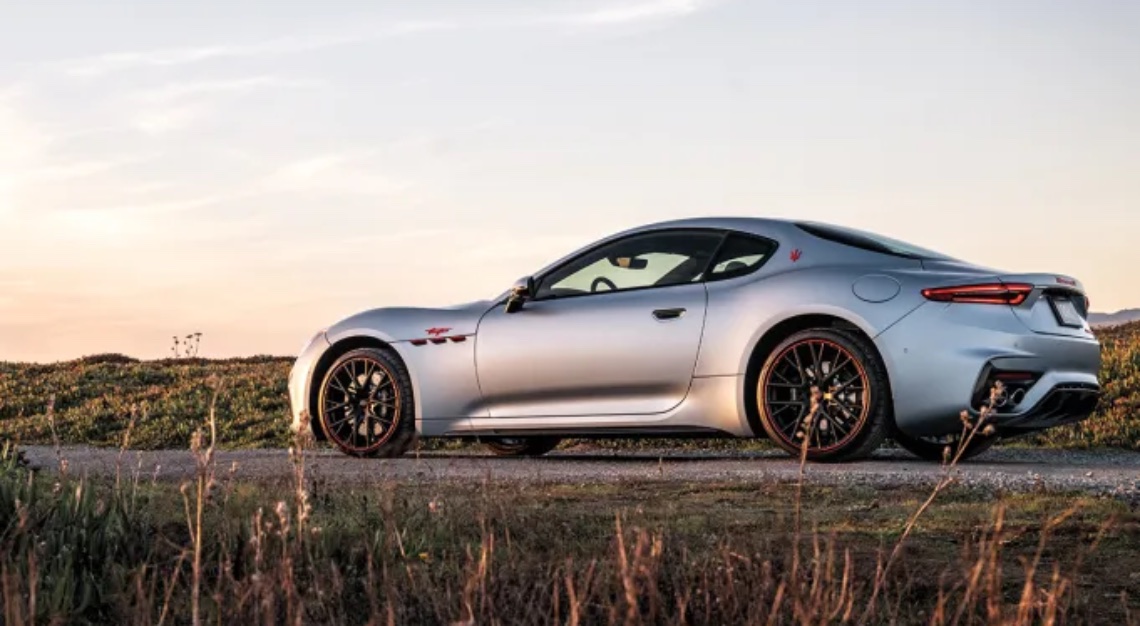
Maserati GranTurismo PrimaSerie 75th Anniversary Launch Edition
The last model year for the GranTurismo was 2019, but most of the updates to this year’s edition concern its engine and interior. That means its recognisable body, penned by Pininfarina in 2007, remains one of the most enduring automotive shapes of the 21st century. The new PrimaSerie is produced as a limited edition in two colours (light grey with blue accents or black with burgundy and green hues), with only 75 total available. Michael Steinger appreciated the “classic Italian styling” but nodded to all-new features, including a V-6 engine, which outperforms the old V-8. It also has all-wheel drive for the first time in the model’s history.

Raymond Gutowski, who has owned a couple of Maseratis, was enthusiastic, saying, “This is how you execute a model relaunch. The perfect iteration of a race car built for daily driving. I’m in love.” While acknowledging that “Maserati has had a lot of failed launches the last decade,” Eric Frehsée called the PrimaSerie “the finest machine they’ve built in a long time. It handled the track super well, could also be driven as a daily driver, and had beautiful fit and finish. I really enjoyed this machine and would love to spend more time with it.”
“This was my favourite car,” said Mike Mollo. “I really like the styling and stance. A fun, fun car to drive.” Duly noting its tailored appearance, Najeeb Thomas said, “It looks like the best-fitting Italian suit.”
Engine: 3.0-litre twin-turbo-charged V-6
Power: 542 hp @ 6,500 rpm
0-100 km/hr: 3.3 sec
Top Speed: 320 km/hr

Mercedes-Maybach S680 4MATIC
The Germans still know how to throw a party in the backseat. The Maybach is based on the Mercedes-Benz S Class, but this ultimate variation has a V-12 engine, with 125 more horses than the V-8-powered Maybach S580. Our judges, though, focused squarely on the experience of being driven in it.
Demian Kirschner compared the capacious interior to “driving a sofa”—we took it to be a compliment—and Stephen Miles likewise appreciated the car’s “amazing comfort,” but noted the Maybach is “built for traffic and not the track.” To that end, Mark Newman called it “a fantastic limo that makes me want to hire a chauffeur and start working again.”

Whether you’re behind the wheel or behind the driver, tranquility reigns supreme: The Maybach’s cabin is among the quietest of any vehicle we tested, gas or electric. Ours was fitted with the Executive Rear Seat Package, as well as another upgrade: a refrigerated rear center console big enough for a bottle of bubbly. But the celebration doesn’t stop there: This model also included 21-inch wheels with spokes designed to look like Champagne flutes, no doubt inspired by the optional sterling-silver chalices furnished by Germany’s Robbe & Berking.
Engine: 6.0-litre twin-turbo-charged V-12
Power: 621 hp @ 5,250-5,500 rpm
0-100 km/hr: 4.5 sec
Top Speed: 209 km/hr (limited)

Rolls-Royce Cullinan
The Cullinan is named after the largest gem-quality diamond ever discovered, and our testers thought this model earned the comparison. Anthony Lopez said it’s “probably the best SUV money can buy.” Aaron Frye called the fit and finish “beyond compare,” adding that the plush ride is “like floating on a cloud.” That may be because the Cullinan’s handling, which the manufacturer equates to a “magic carpet ride,” is as composed as the stately Rolls-Royce Phantom’s. One gets the sense that Goodwood built the world’s costliest and most opulent SUV not just because it could, but because its customers demanded it.

Arthur Ward IV described the Cullinan as “a rolling bank vault! Its brakes give even the most aggressive driver confidence. And the interior materials make you want to lounge for days.” Rear-wheel steering effectively shortens the wheelbase for tight turns and enhances handling response overall. Taylor Merritt noted that despite the Cullinan’s enormous heft, “it handled surprisingly well—good acceleration and nimble through the slalom and evasive maneuvers.” Neil Johnson was more lavish with his praise, saying, “The interior is impeccable, and the performance for a luxury SUV is second to none.”
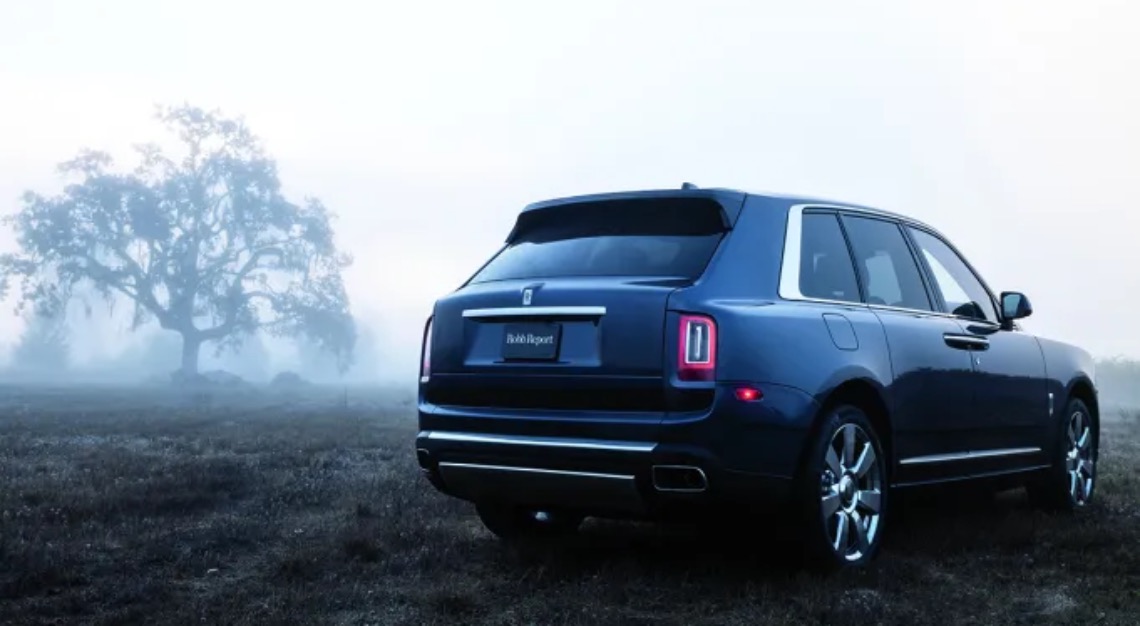
The console-mounted “Off Road” button sets traction and air-suspension at ride-height, elevating the vehicle enough to traverse a 22-inch-deep body of water. It’s a challenge that we imagine few Cullinans will ever encounter, and proof that this Rolls-Royce is remarkable by every standard. Michael Steinger summed it up, saying, “Rolls-Royce perfection, as always!”
Engine: 6.75-litre twin-turbo-charged V-12
Power: 563 hp @ 5,250-5,500 rpm
0-100 km/hr: 5.1 sec
Top Speed: 249 km/hr (limited)

Bentley Flying Spur Speed
More than any other legacy automaker, 105-year-old Bentley has not only stayed relevant but continues to find exhilarating ways to pair traditional automotive craftsmanship with contemporary performance-driving dynamics. It’s why variants of the marque’s two-door Continental have been named our Car of the Year since 2022. This time around, its baronial Flying Spur entered the fray; the sedan is among the last 12-cylinder Bentleys in the model line, as the automaker will stop building the power plant in April. Fittingly, the Speed moniker denotes the most muscular version of the engine, translated aesthetically with the use of race-ready carbon fiber for select exterior components. Both stately and startlingly agile, the four-door came close to giving Bentley a three-peat victory in the contest, finishing second in the judges’ voting, though somewhat lower on the editorial team’s list.
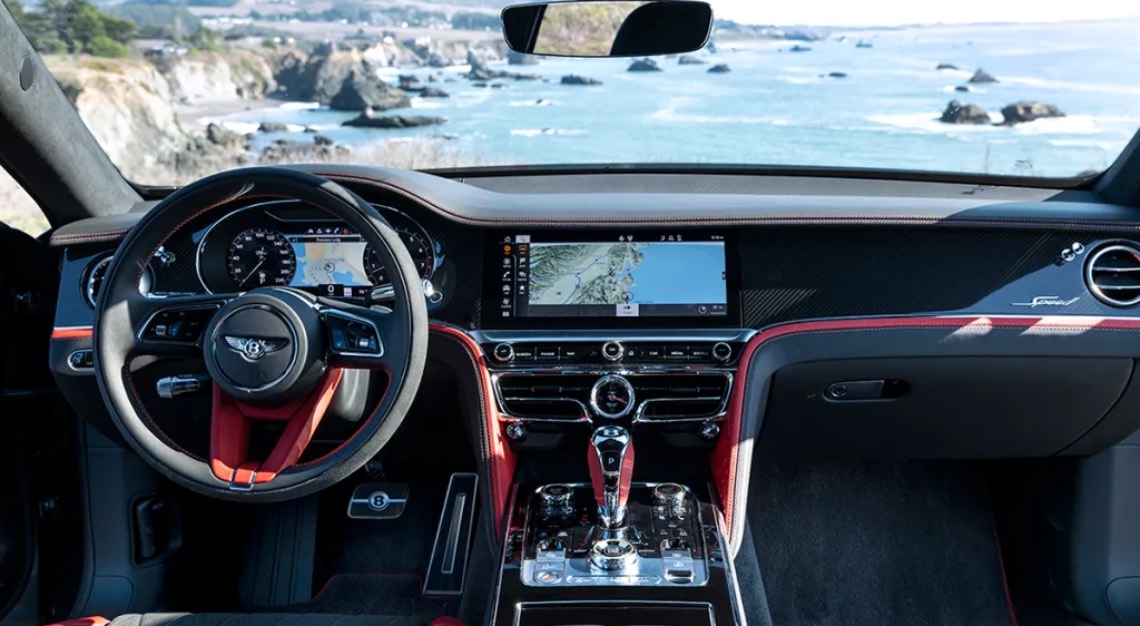
“If it were a new model and not the final flourish, it could have been my top pick. As it stands, it’s like a great Bordeaux vintage to be savored, one that will never be made again.” H. Wayne Huizenga Jr. chose a different analogy, hailing the car as “the world’s fastest luxury hotel.” For Chad Susman, driving it was an exercise in restraint. “Once you put your foot down,” he said, “it’s hard to take it off the pedal.” And Jeffrey Morgan was taken by how it “incorporates the extremes of comfort, power, handling, and beauty in an unassuming but dominating way.” Sure, there were a few contrarians, such as William Greig, who invented a new word for his assessment: “unthrilling.” The reason that Bentley finished on the podium, though, is because most judges agreed with Tresider Burns, who declared, “I could drive this car forever.”
Engine: 6.0-litre twin-turbocharged W-12
Power: 626 hp @ 6,000 rpm
0-100 km/hr: 3.7 sec
Top Speed: 33 km/hr

McLaren Artura
While Robb Report’s editorial team ranked the 671 hp McLaren Artura as its 2024 Car of the Year, the judging field ranked it third. “Rather than merely a stopgap in power-train advancement, hybridisation is where the automotive industry should stay focused if the Artura represents its potential,” said automotive editor Viju Mathew. The model is not just the first production-series hybrid from the automaker, but it also debuts the British marque’s use of a six-cylinder engine in one of its road cars and premieres the McLaren Carbon Lightweight Architecture (MCLA) platform from which the next generation of Woking supercars will be built. With a 3.0-litre twin-turbo engine paired with an axial flux electric motor—a near-identical configuration to the 819 hp Ferrari 296 GTB—the 1,394-kilogram (dry weight) Artura features the shortest wheelbase in the current lineup, to further enhance its powerful athleticism. “The Artura’s performance will be seared in my memory bank,” said Lee Oleinick, while Kenneth Spiegel was smitten by its “nearly perfect steering,” calling it “fast and nimble, a car that exudes confidence in high speeds.”

With more cockpit space than the 720S, the Artura was described by Kirk Meighan as “the practical exotic,” although Morgan Saliny still wasn’t a fan, noting that the “ergonomics, button placement, and infotainment are all light-years behind where they should be in a car of this caliber.” And Brice Janney felt like he “needed a can opener to get in and out,” an opinion at odds with that of H. Wayne Huizenga Jr., who said that it was “the first McLaren I actually fit in at 1.85 metres mph t.” It was the Artura’s rarefied handling that most impressed Jacob Januszewski: “Each turn is a symphony of agility and grace, leaving you grinning uncontrollably. It unquestionably sets a new benchmark.” But it was Burton Young who summed up the mood most succinctly: “Not an everyday-driving car, but a car you’ll want to drive every day.”
Engine: 3.0-liter twin-turbocharged V-6 with electric motor
Power: 671 hp @ 7,500 rpm (combined)
0-100 km/hr: 3.0 sec
Top Speed: 330 km/hr

Robb Report’s 2024 Car of the Year: Aston Martin DB12
With the tenacity of Rocky Balboa, Aston Martin has stayed in the automotive ring for 111 years, many of which saw it take fiscal beatings that would have made lesser brands crumple. And yet time and again it got back up to land haymakers with pulse-pounding models such as the Valkyrie hypercar and, now, the Aston Martin DB12. And what better way to commemorate the 76th anniversary of the flagship DB line than by naming the latest iteration Robb Report’s 2024 Car of the Year?
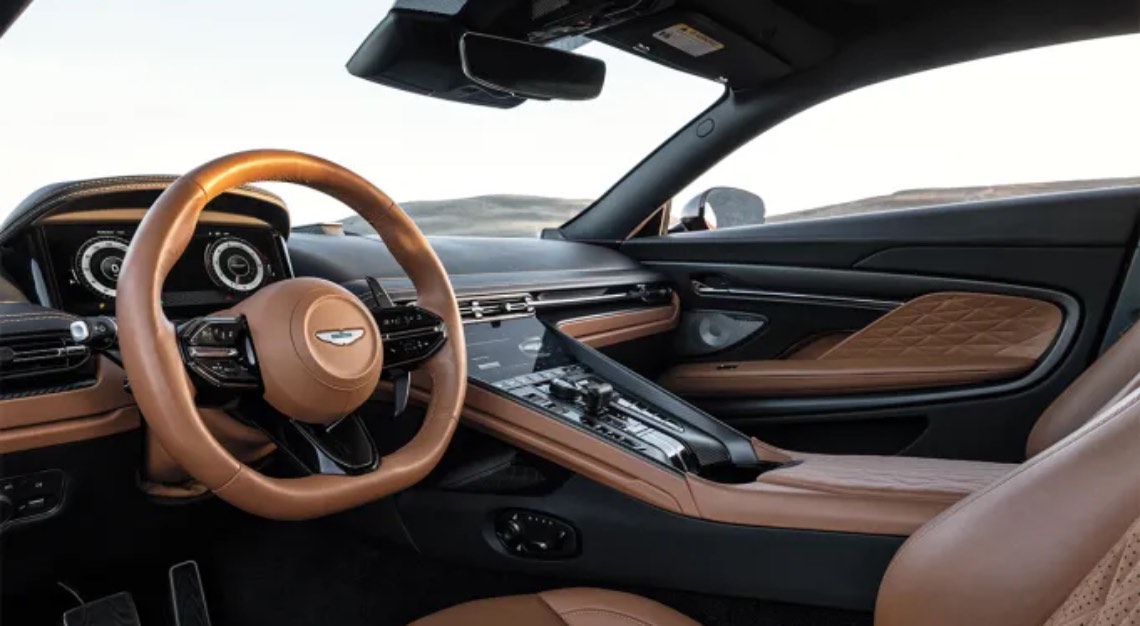
The competition wasn’t even close for most of the judges. The 671 hp DB12, with 800 Nm of torque, has 34 per cent more output than the DB11, translated in a more aggressively athletic body that still delivers a healthy dose of savoir faire. Yet most impressive for many of the drivers was this model’s new interior, which abandons Aston’s long-outdated infotainment system in favour of an exponentially better setup.

“A new beginning for Aston Martin” is how James Diggs described the car, while Benjamin Mitchell was enamored with its “sense of occasion,” which he credits to the “striking exterior looks, brutal acceleration at the top of the rev range, and confident handling.” Although the car was the Robb Report editorial team’s third-place pick, Robert Ross, automotive editor at large, recalled when the DB9 was voted Car of the Year in 2005: “It was a groundbreaking model, and now, Aston Martin distills everything learned over the ensuing two decades into its best GT yet.”

Awarding the DB12 top honors was a sentiment that ran deep among the judging pool, but some were not swayed. “I’m left a bit confused on what this car is trying to be,” said Gregory De Giorgis, who added that the “ergonomics are a bit off” and that he was “left missing the traditional V-12 sound.” Gerritt Huizenga was blunter, saying, “It feels like the car tries too hard to be both a sports car and a grand tourer, and can’t do either right.” But their notions were against the tide of the general consensus. “Forget Broadway—if you want a performance, drive this car,” Najeeb Thomas raved, while the ultimate validation came from Burton Young: “Its classic style and engineering make this DB12 one of the best cars ever made.”
Engine: 4.0-litre twin-turbocharged V-8 (by Mercedes-AMG)
Power: 671 hp @ 6,000 rpm
0-100 km/hr: 3.5 sec
Top Speed: 325 km/hr

How Robb Report’s Car of the Year is chosen
Although separated by 4,908 kilometres, the Sonoma Raceway and the Concours Club venues afforded our judges similar opportunities to evaluate this year’s 10 Car of the Year (COTY) contenders through a series of on-track exercises that showcased the best attributes of each. It’s a full day’s work, and in the case of a couple of California sessions, two days of driving that allowed even more time behind the wheel.
Of course, plenty of the evaluation was done without so much as turning a key. Each evening before the drive day, all 10 vehicles were arrayed on the lawns of Carneros Resort and Spa in Napa, Calif., and the Boca Raton resort in Florida, respectively, for a late-afternoon welcome reception made all the more welcome by cocktails and hors d’oeuvres. Here, judges and their guests mingled with RR1 hosts, a Robb Report editor, and one another, assessing the cars up close and from within, forming opinions that might (or might not) be dispelled once motion was added to the equation.
Overall, our judges were asked to consider six criteria—a formula that we believe gives every entrant a fighting chance to be named Car of the Year. They are:
Looks: interior and exterior
Luxury and Comfort: ergonomics, materials, and noise, vibration, and harshness
Performance: acceleration, handling, and braking Utility: capacity and practicality
Intangibles: collectibility and “wow” factor
This year could be regarded as a British invasion of sorts, with the Aston Martin DB12, the Bentley Flying Spur, and the McLaren Artura receiving the judges’ top scores for Car of the Year, in that order. Members of the Robb Report team weighed in, too, with automotive editor Viju Mathew and automotive editor at large Robert Ross playing editorial hosts in Florida and California, respectively. Both were in lockstep in pronouncing a trio of Brits in the top spots, but with McLaren first, followed by the Rolls- Royce Spectre and then the Aston Martin DB12—a vote that ultimately changed the second- and third-place standings on the final podium.

Testing the cars on road and track
For the first time in 21 years, we broke with tradition and took to the track for Napa’s Car of the Year programme. Trading St. Helena’s Silverado Trail for a route from our home base at Carneros Resort and Spa to Sonoma Raceway’s new Turn 11 hospitality venue, our 58 judges had an opportunity to evaluate all 10 contenders on road and circuit. Our judges in Boca Raton have been doing much the same thing from that programme’s beginning in the 2019 COTY competition, and this year, 65 participants drove from the Boca Raton resort to the Concours Club in Opa-locka, about 45 minutes away. Finally, judges in both California and Florida (three sessions on each coast) experienced the cars under much the same conditions.
Modular exercises included a slalom course, accident-avoidance maneuvers, emergency braking, and acceleration runs. To properly evaluate handling dynamics, lead-follow exercises orchestrated by our professional instructors from Radius Drive allowed judges to experience each car’s performance capabilities in a closed-course setting. Groups of five cars stayed right on the tail of an instructor’s lead vehicle—and one another in succession—at pace, sufficient to make a meaningful assessment of each contestant’s performance characteristics.
A 3,000-pound supercar such as the McLaren Artura is an altogether different beast than the 6,000-pound Rolls-Royce Spectre, yet both are engineered for the joy of speed. They just embody and express it quite differently, which is what speaks to us as drivers. What we learned is that it takes more than top speed and G forces, or acres of leather and near-total silence, to make a COTY favourite.
This story was first published on Robb Report USA

